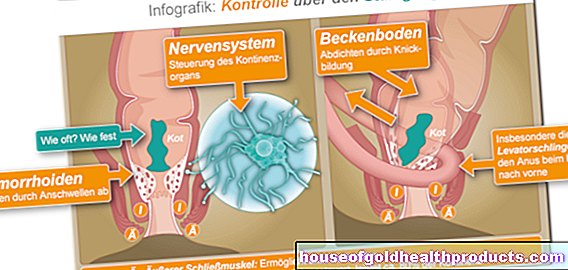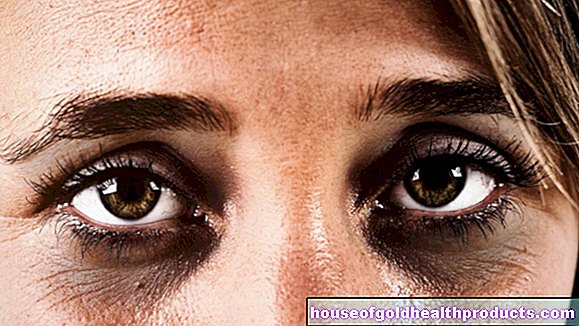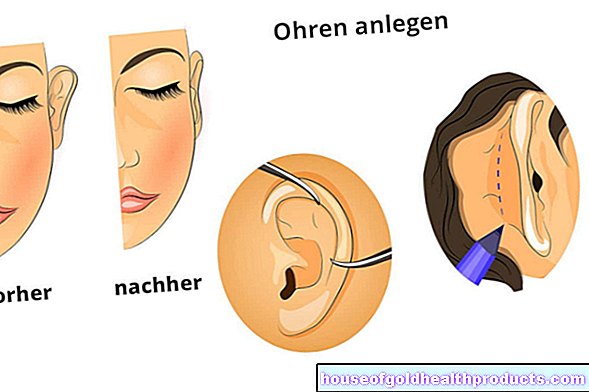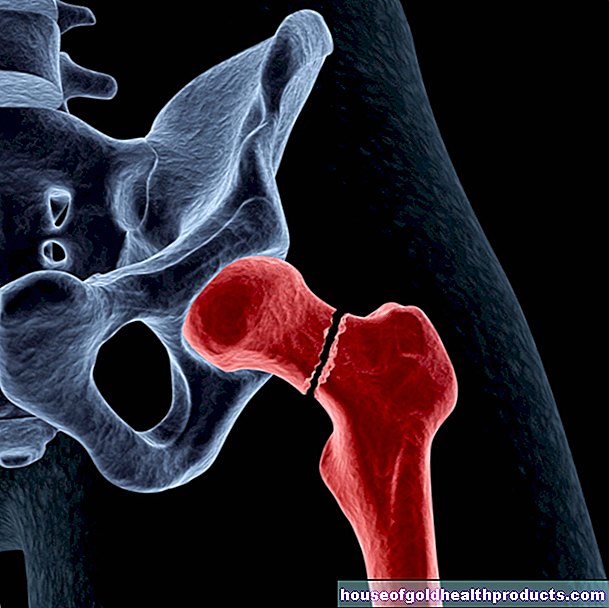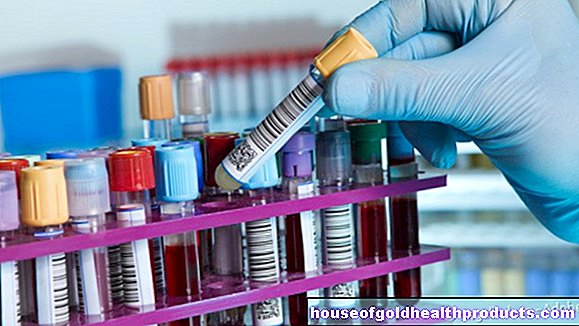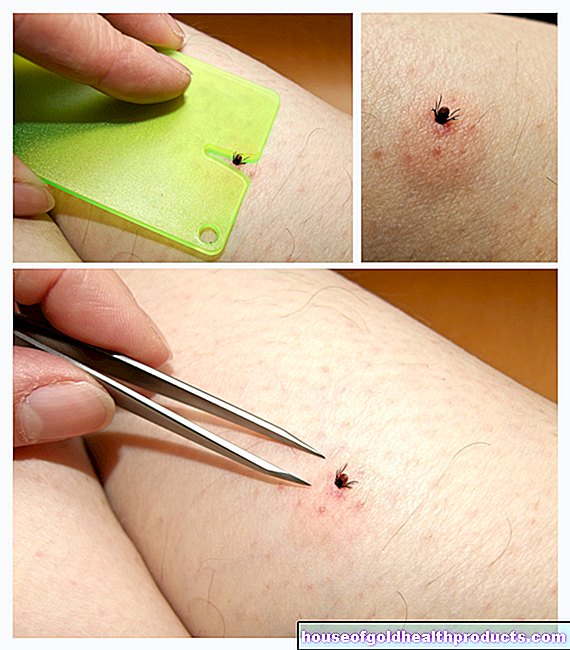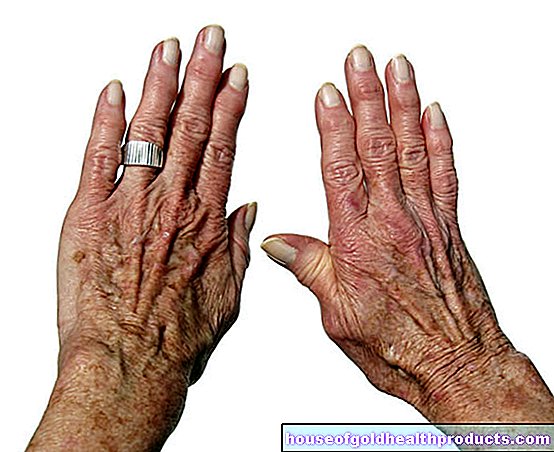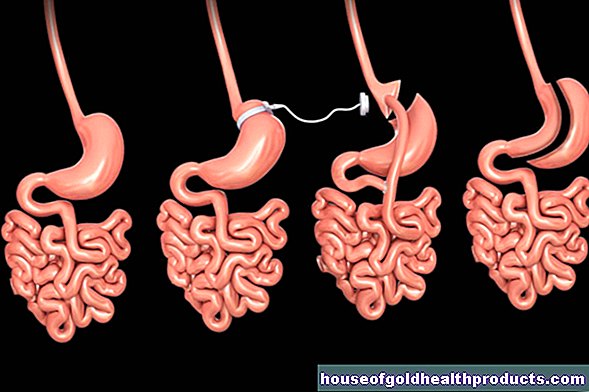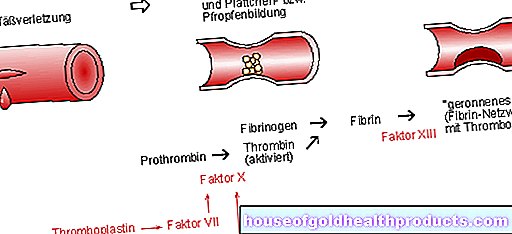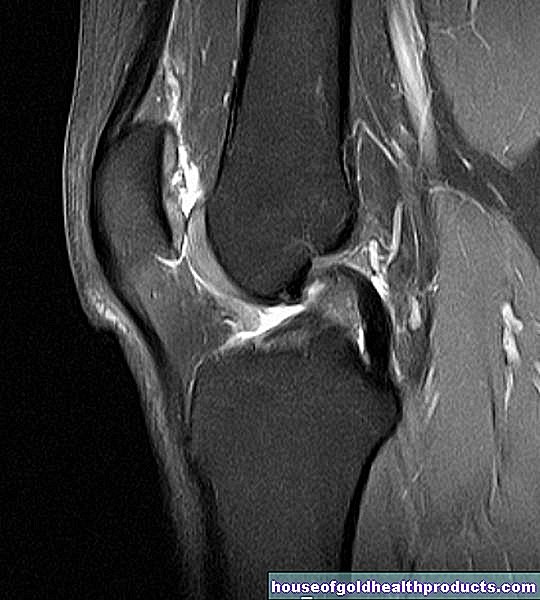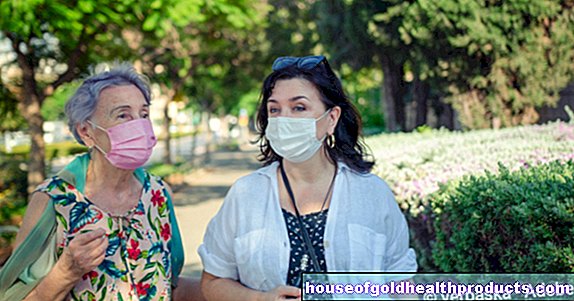Vaccination with AstraZeneca also suspended in Germany
Christiane Fux studied journalism and psychology in Hamburg. The experienced medical editor has been writing magazine articles, news and factual texts on all conceivable health topics since 2001. In addition to her work for, Christiane Fux is also active in prose. Her first crime novel was published in 2012, and she also writes, designs and publishes her own crime plays.
More posts by Christiane Fux All content is checked by medical journalists.After vaccination with the AstraZeneca vaccine, thrombosis occurred in some individuals - in Denmark, one vaccinated person died as a result. The European Medicines Agency (EMA) is now examining whether the blood clots have actually formed as a result of the vaccination - or whether they just happened by chance. Some EU countries have imposed vaccination bans for the time being. Now also Germany.
Update March 19, 2021: After the federal government lifted the vaccination ban for the AstraZeneca vaccine on the evening of March 18, 2021, you will find current information on the topic in the article EMA: Decision for AstraZeneca.
This was announced by the Federal Ministry of Health on the basis of a corresponding recommendation from the Paul Ehrlich Institute. According to new reports, the institute considers further investigations to be necessary. The EMA will decide "whether and how the new findings will affect the approval of the vaccine." Federal Minister of Health Jens Spahn (CDU) spoke of a pure precautionary measure.
Estonia, Lithuania, Luxembourg, Latvia and Denmark, Ireland, Norway and Bulgaria and most recently the Netherlands and France had previously temporarily stopped vaccinations with the Swedish-British vaccine. Great Britain, however, continues to vaccinate.
The thromboses were reported in particular in connection with a special batch of the AZD1222 vaccine, which is not vaccinated in Germany. The European Medicines Agency (EMA) is already investigating all cases of thrombosis that have been reported after vaccination - including after other batches. Now the Paul Ehrlich Institute (PEI) also wants to wait and see.
"Noticeable accumulation of rare brain thromboses"
"When analyzing the new data, the experts at the Paul Ehrlich Institute now see a noticeable accumulation of a special form of very rare cerebral vein thrombosis (sinus vein thrombosis) in connection with a lack of blood platelets (thrombocytopenia) and bleeding close to vaccinations the COVID-19 vaccine AstraZeneca, "write the vaccination experts.
They point out that people who have received the COVID-19 vaccine AstraZeneca and feel increasingly unwell more than four days after the vaccination - e.g. with severe and persistent headaches or punctiform skin bleeding - should seek medical treatment immediately.
The risk of death from Covid-19 is a thousand times higher
The EMA, on the other hand, is currently sticking to its assessment that there is no evidence that AstraZeneca's Covid-19 vaccine caused the thrombosis. Rather, the EU authority expressly warns against suspending vaccinations. She still rates the risk of getting seriously ill or dying from Covid-19 as significantly higher than the possible side effects of the vaccine.
In fact, thromboses close to the vaccination have so far been reported only 11 times in Germany (as of March 11, 2021), four died - out of 1.2 million doses inoculated in Germany. The death rate associated with thrombosis was thus around 0.0003 percent. Even if the thromboses were ultimately due to the vaccination: The mortality rate after a coronavirus infection would be 1.8 percent, more than 5,000 times higher.
Cerebral vein thrombosis is rare
Overall, deaths after thrombosis are not a medical rarity: on average, 100,000 people die from them every year, in Germany alone.
Since the risk of thrombosis increases with age and the majority of those who are vaccinated are still elderly, the likelihood that some of them will develop a thrombosis by chance shortly after vaccination is correspondingly high. For example, if the blood clot travels to the lungs, a life-threatening pulmonary embolism occurs.
However, the cerebral vein thromboses observed here are very rare. You only meet 3 to 5 out of 1 million residents each year. In Germany that would be 240 to 350 people of all ages, i.e. up to one person a day. The most common triggers are pregnancy, the use of hormonal contraceptives, and hormone replacement therapy for menopause. Accordingly, three times more women are affected than men.
Tags: vaccinations teeth news
